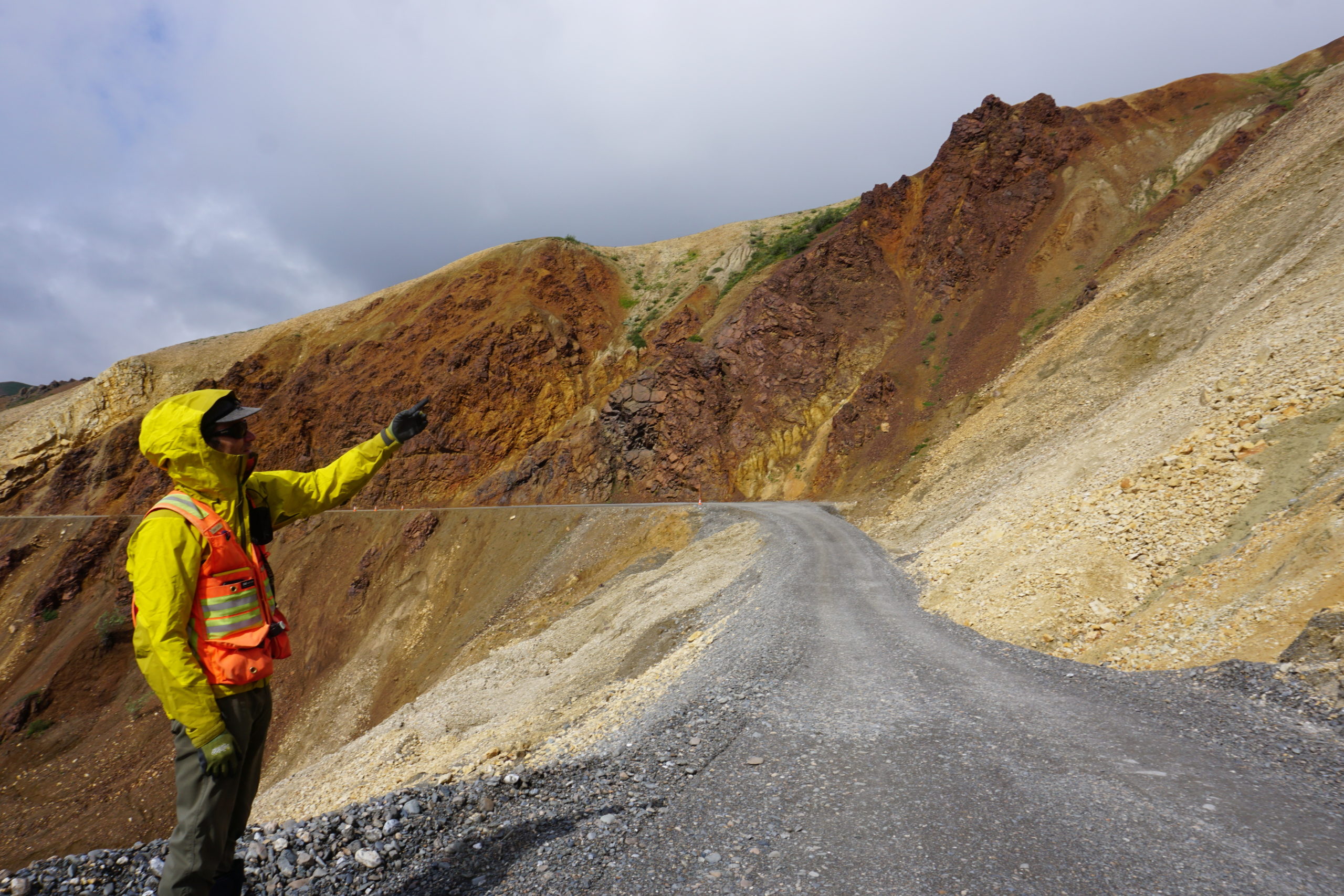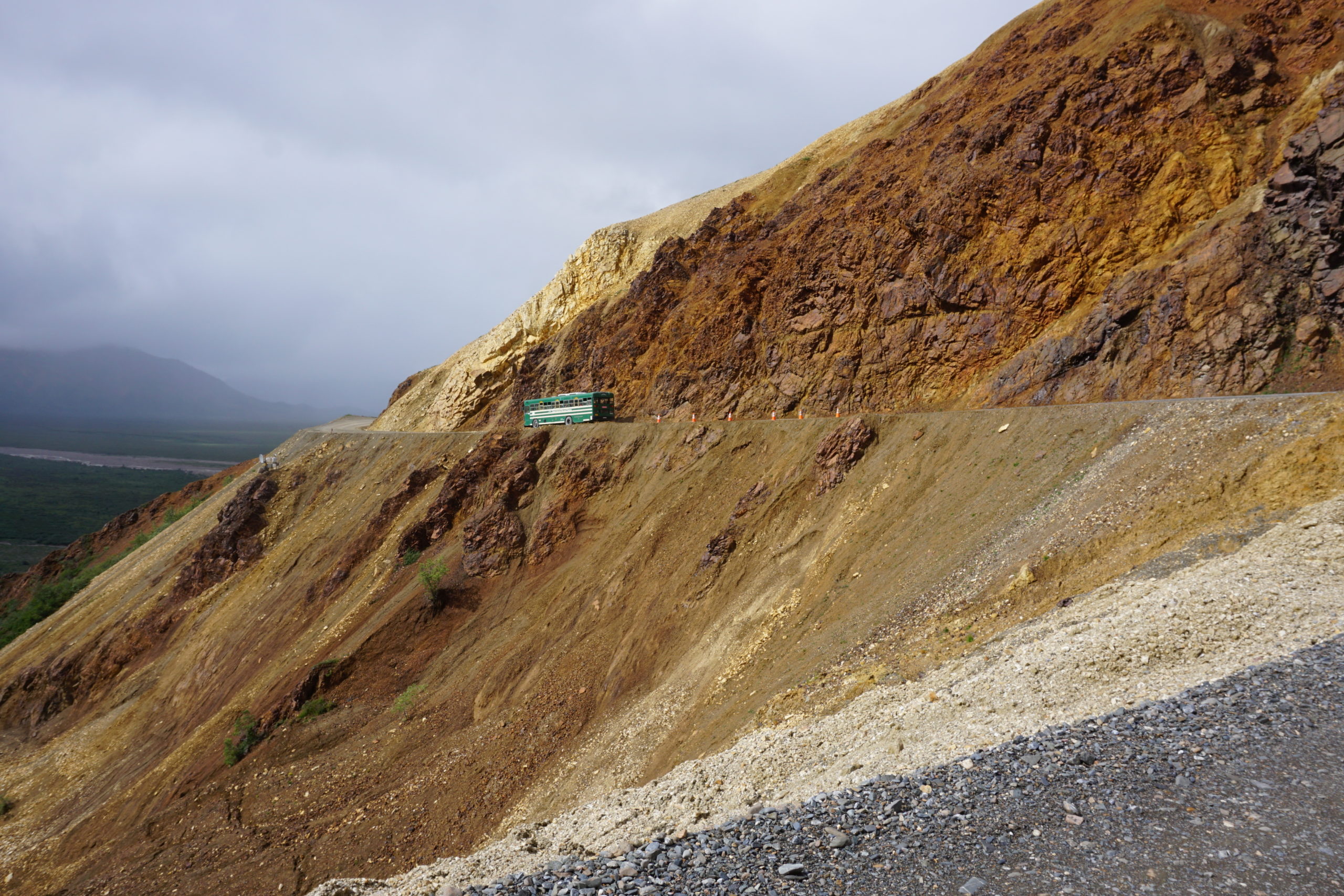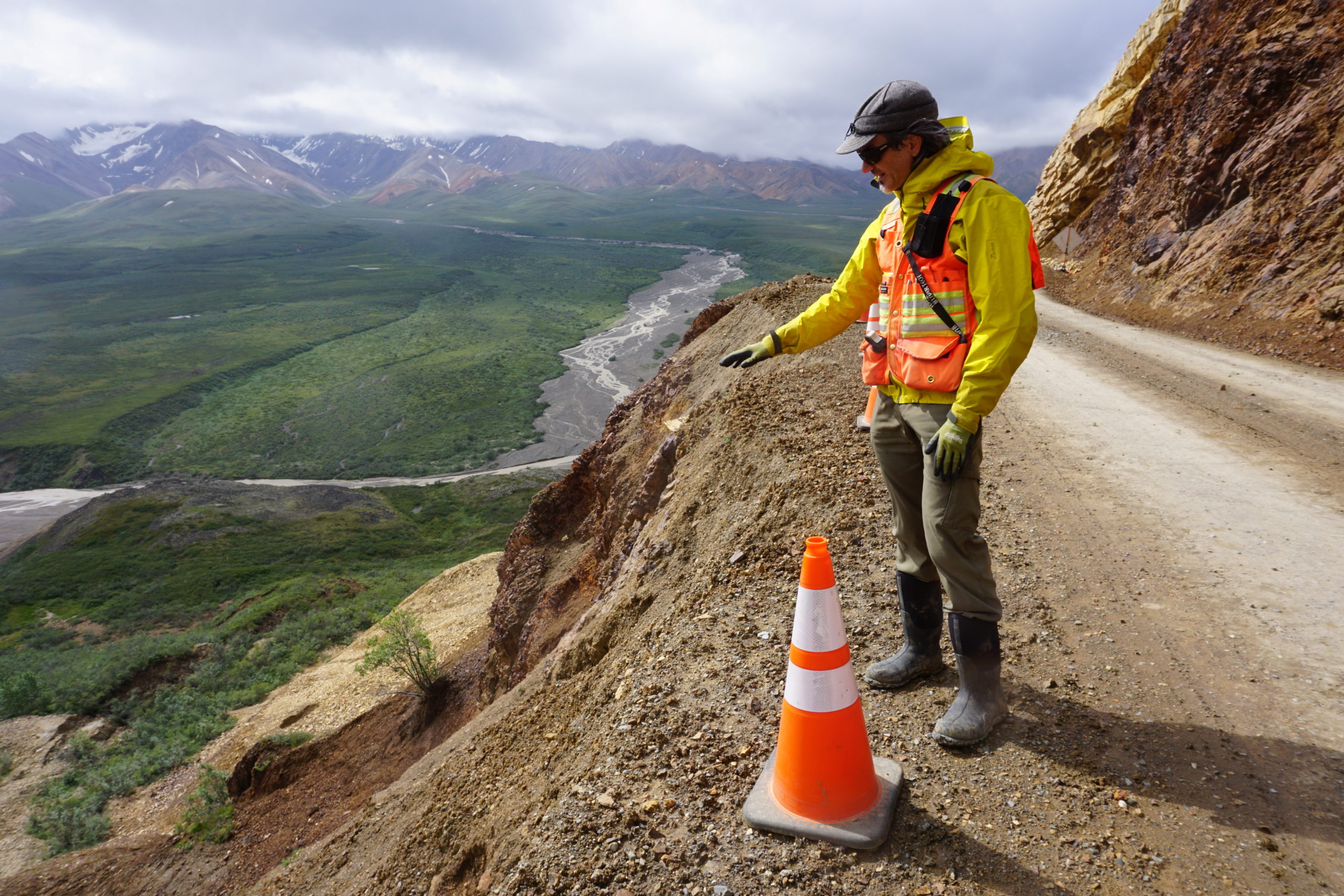Landslides have prompted a partial closure of Alaska’s Denali National Park
The slide activity is speeding up as previously frozen soil thaws.

ANCHORAGE — A large swath of Denali National Park, one of Alaska’s premier travel destinations, has closed for the summer tourist season weeks early after heightened landslide activity from excessive thawing of a mountain slope made the park’s only access road unsafe.
The National Park Service announced the closure late on Tuesday. Gradual but sustained sliding of the hillside has made travel treacherous around the halfway point of the 92-mile (148-kilometer) access road, near a site called Pretty Rocks, the agency said.
The “changing climate is driving frozen ground to thaw,” Denali park superintendent Don Striker said in a statement, which described the pace of land movement at Pretty Rocks as “unprecedented in the history of the park road.”
The road’s premature closure cuts tourists off from a portion of the 6-million-acre (2.4-million-hectare) park, famous for its wildlife and snow-capped peaks – including Denali, North America’s tallest mountain. As of Tuesday, there were 76 backcountry visitors affected, Park Service spokesman Paul Ollig said.
[Thaw-triggered landslides are a growing hazard in the warming North]
The Pretty Rocks site, perched 1,000 feet (305 meters) above a valley cut by a braided glacial river, is already considered the most dangerous area for thaw-triggered landslides along the park’s access road. After decades of relatively slow movement, the slope’s rate of motion has accelerated dramatically in recent years.
In 2018, the slope was moving about half an inch each day, the Park Service said. Last year, the pace increased to 3.5 inches (9 centimeters) a day. Now, after late-summer rains, part of the slope is moving about a foot (30 centimeters) a day, according to the park.
“Monitoring has shown that the landslide is moving about 12 inches per day underneath the road’s surface, so we are not able to maintain safe access,” Ollig said by email.
Measurements show the road there has been displaced by at least 34 feet (10 meters) since late March, he said.
The Pretty Rocks slide, which is not a single-day event but a continuous movement, is one of about 150 known mobile slopes that have cleaved hillsides along the park road.
In the early 2000s, about half of Denali National Park’s landscape sat atop near-surface permafrost, according to a University of Alaska Fairbanks study. With climate change, that is expected to decline to 6 percent by mid-century and just 1 percent by 2100, with frozen remnants only on north-facing, high-altitude spots, according to the study.
Denali attracts about 600,000 visitors during the tourism season, which normally runs into September. Most visitors travel by shuttle bus to the park for hiking, camping and sightseeing.
The Park Service said the road up to Pretty Rocks remained open. But that was no consolation for many tourists with plans beyond that point, including those wishing to reach the popular Wonder Lake campground.
Camp Denali, one of three lodges at the end of the park road, has had to close two weeks early, with about 140 guests having their bookings canceled, co-owner Simon Hamm said. The other lodges are in a similar situation, he said.

